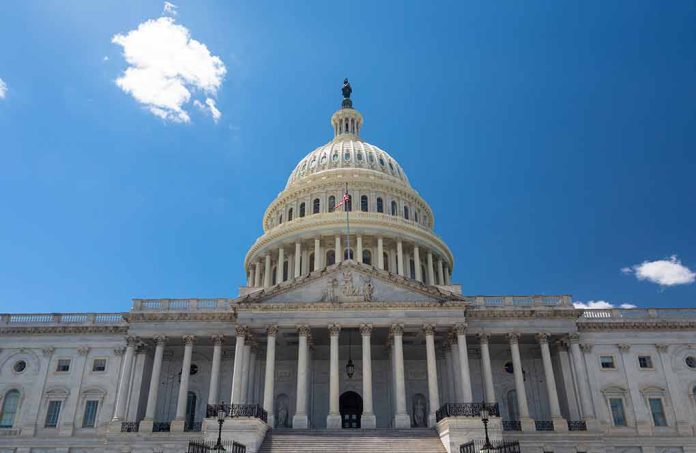
President Donald Trump has strategically withdrawn Congresswoman Elise Stefanik’s nomination for U.S. ambassador to the UN to safeguard a fragile Republican majority in the House.
Key Takeaways
- Donald Trump withdrew Elise Stefanik’s nomination for U.S. ambassador to the UN.
- The decision was influenced by concerns over maintaining Republican seats in Congress.
- The withdrawal reflects anxiety about holding Stefanik’s seat, despite it being a Republican stronghold.
- Stefanik is the fourth Trump nominee to not complete the confirmation process.
Stefanik’s Nomination Withdrawn
Donald Trump recently made the decision to withdraw Elise Stefanik’s nomination as the U.S. ambassador to the United Nations. This move was taken to ensure that the GOP maintains its slight edge in the House of Representatives, which is essential for advancing Trump’s legislative initiatives.
Before its withdrawal, Stefanik’s nomination had moved forward from committee but was held back due to concerns over the already narrow Republican majority in the House. Her presence is deemed crucial in providing enough votes for significant Republican policies. Trump stated, “We must be unified to accomplish our Mission, and Elise Stefanik has been a vital part of our efforts from the very beginning. I have asked Elise, as one of my biggest Allies, to remain in Congress.”
The Political Implications
Maintaining Republican unity has proven challenging due to recent special elections and the unpredictable nature of future contests. These recent elections in Florida and Pennsylvania added pressure on the GOP to ensure Stefanik remained in her congressional seat, which has historically been a Republican bastion. Speaker Mike Johnson remarked, “It is well known Republicans have a razor-thin House majority, and Elise’s agreement to withdraw her nomination will allow us to keep one of the toughest, most resolute members of our Conference in place to help drive forward President Trump’s America First policies.”
A critical concern remains over the absence of a permanent U.S. ambassador at such a pivotal time for the UN, where various global issues demand immediate attention. Currently, Dorothy Shea is fulfilling the role of acting deputy U.S. ambassador.
Impact on GOP Strategy
This development underscores the delicate nature of balancing legislative priorities with maintaining a governing majority. Stefanik holds significant sway in Congress and has been considering a transition away from her current role, evident from her preparations for a farewell tour. Her continued presence, however, is seen as vital to preserving GOP goals and thwarting potential losses in upcoming special elections.
This decision marks Trump’s fourth nominee not completing the confirmation process, pointing to the complexities inherent in managing political strategy and governance. The GOP’s urgency to retain Stefanik illustrates the larger picture of internal tactics employed to support Trump’s agenda.
Sources
1. Trump withdraws Rep. Elise Stefanik’s nomination for UN ambassador, citing tight GOP House margin
2. Trump withdraws Elise Stefanik’s UN nomination to protect GOP House majority




